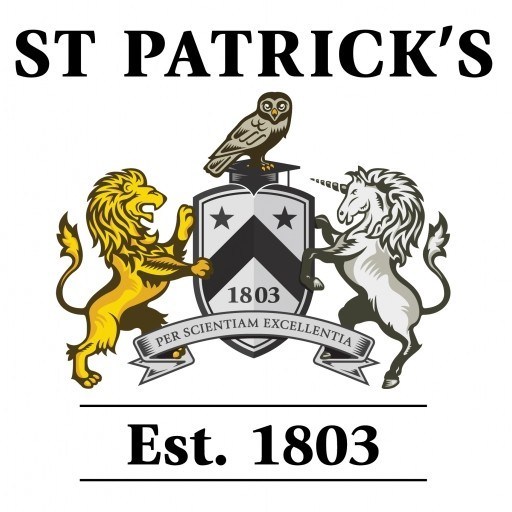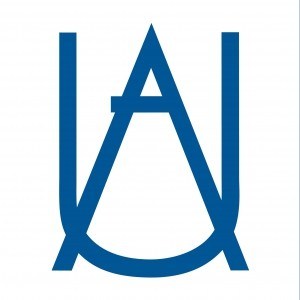Photos of university
The Bachelor of Science in Information Systems at the University of Science and Technology is a comprehensive undergraduate program designed to equip students with the essential knowledge and skills required to excel in the rapidly evolving field of information technology and systems management. This program integrates core concepts from computer science, business, and information technology to prepare graduates for diverse roles in industry, academia, and government. Throughout the course of study, students will develop a solid understanding of the design, implementation, and management of information systems, as well as the strategic use of technology to solve complex problems and improve organizational efficiency. The curriculum covers foundational topics such as programming, database management, networking, data analysis, cybersecurity, and software development, while also emphasizing critical thinking, effective communication, teamwork, and ethical considerations in technology use. Students have access to modern laboratories equipped with current software and hardware, providing practical experience in developing and managing information systems. The program encourages active learning through project-based assignments, internships, and collaboration with industry partners, facilitating a seamless transition from academic environment to professional careers. Graduates of the BSc in Information Systems will be well-prepared for positions such as systems analyst, database administrator, network administrator, cybersecurity specialist, and IT consultant. Additionally, this program provides a strong foundation for those interested in pursuing postgraduate studies or research in related fields. Emphasizing innovation, analytical skills, and a global perspective, the program aims to produce versatile professionals capable of contributing to digital transformation initiatives and technological advancements across various sectors. The University of Science and Technology is committed to maintaining high academic standards and fostering an inclusive, dynamic learning environment that inspires students to achieve their full potential and become leaders in the information systems domain.
Degree Programme in Information Systems at the University of Science and Technology offers a comprehensive curriculum designed to equip students with the essential skills and knowledge necessary for successful careers in the rapidly evolving field of information technology. The program focuses on the development, implementation, and management of information systems that support organizational operations, decision-making, and competitive advantage. Throughout the course of study, students engage in a combination of theoretical learning and practical application to gain a well-rounded understanding of core concepts such as systems analysis and design, database management, software development, cybersecurity, and network infrastructure.
The curriculum includes foundational courses in programming, mathematics, and information technology, followed by specialized modules in enterprise systems, data analytics, information security, and project management. Students have opportunities to participate in hands-on projects, internships, and collaborations with industry partners, enabling them to apply their knowledge in real-world scenarios. The program emphasizes the development of problem-solving skills, critical thinking, and the ability to adapt to emerging technologies.
Graduates of this program will be prepared to work in various roles, including systems analyst, database administrator, IT consultant, software developer, and cybersecurity specialist. The program also prepares students for advanced studies and research in information systems, fostering innovation and technological advancements. With a strong foundation in both technical and managerial aspects of information systems, students will be well-equipped to meet the challenges of modern businesses and organizations that increasingly rely on digital solutions. The University of Science and Technology is committed to providing a dynamic learning environment supported by experienced faculty, state-of-the-art facilities, and a vibrant academic community dedicated to excellence and innovation in the field of information systems.
The Bachelor of Science in Information Systems at the University of Science and Technology requires applicants to have completed secondary education with a strong background in mathematics and computer science. Prospective students must submit their academic transcripts, proof of English proficiency such as TOEFL or IELTS scores, and letters of recommendation. The programme is designed to provide students with a comprehensive understanding of information technology, systems analysis, database management, programming, and network security. Core coursework includes introductory courses in programming languages, data structures, and algorithms, alongside specialized modules in enterprise systems, cybersecurity principles, and software development lifecycle. Students are also expected to undertake practical projects and internships to gain real-world experience. The curriculum emphasizes both theoretical knowledge and hands-on skills, preparing graduates for careers in IT consultancy, systems analysis, and database administration. To graduate, students must complete a minimum number of credits, including a capstone project that demonstrates their ability to implement information systems solutions. The programme encourages participation in workshops, seminars, and industry collaborations to stay updated with technological advancements. Admission is competitive and based on academic merit, relevant extracurricular activities, and motivation for pursuing studies in information systems. The university also offers career counseling and placement services to assist graduates in entering the job market. Overall, the programme aims to develop highly skilled professionals capable of designing, implementing, and managing complex information systems in various organizational contexts.
The financing of the Bachelor's degree program in Information Systems at the University of Science and Technology is primarily supported through a combination of state funding, internal university resources, and external scholarships. The program benefits from government educational grants aimed at developing IT expertise within the country, which are allocated through national educational funding programs. These grants help subsidize tuition fees for eligible students, ensuring wider access to quality education in information technology fields.
In addition to government support, the university allocates part of its budget to maintain and update the curriculum, invest in modern lab facilities, and support research activities, which in turn contributes to the overall quality of education and practical training offered to students. There are also internal funding opportunities such as university scholarships and stipends based on academic performance, which help lessen the financial burden on students.
Furthermore, the university encourages partnerships with private sector companies and international organizations, some of which provide funding for scholarships, internships, and cooperative education programs. These collaborations often include financial support for students pursuing specific projects or research in Information Systems. Students are also encouraged to participate in external competitions and grants, which can provide additional financial aid or stipends to support their studies.
Tuition fees for international students are determined based on a fee schedule set by the university, with options available for installment payments. The university offers financial counseling to help students identify available funding sources and plan their finances effectively. Additionally, some students may qualify for federal or regional grants intended for higher education students, further easing the financial burden.
Overall, the program's financing strategy aims to ensure the accessibility of quality education in Information Systems for a diverse student body. The combination of government funding, university resources, private sector partnerships, and external grants collectively support both the operational costs of the program and the financial needs of students, fostering a conducive environment for the development of highly skilled IT professionals.
The Bachelor of Science in Information Systems at the University of Science and Technology is a comprehensive program designed to equip students with the essential skills and knowledge needed to excel in the rapidly evolving field of information technology. The curriculum combines foundational courses in computer science, information technology, and management, providing students with a balanced education that fosters technical proficiency as well as business acumen. The program emphasizes practical skills such as software development, database management, network security, and data analysis, preparing graduates to effectively design, implement, and manage information systems in various organizational contexts.
Students gain hands-on experience through laboratory work, project-based assignments, and internships that connect them directly with industry partners. The program's coursework covers a range of topics including information systems analysis and design, enterprise resource planning, cybersecurity principles, and the ethical and legal issues surrounding data management. As part of their education, students are encouraged to develop critical thinking and problem-solving skills, enabling them to address complex challenges faced by organizations in the digital age.
The faculty comprises experienced professionals and researchers dedicated to providing high-quality instruction and mentorship. The university also offers modern facilities, including state-of-the-art computer labs and collaboration spaces, to support experiential learning. Graduates of the program are well-prepared for careers as systems analysts, database administrators, IT consultants, or project managers and have the option to pursue further studies in related graduate programs.
Overall, the Information Systems program at the University of Science and Technology aims to produce versatile, innovative, and ethical IT professionals who can contribute effectively to technological advancements and organizational success in a globalized economy. The program's blending of theoretical knowledge with practical skills ensures that students are workforce-ready upon graduation, with opportunities for lifelong learning and professional development.




